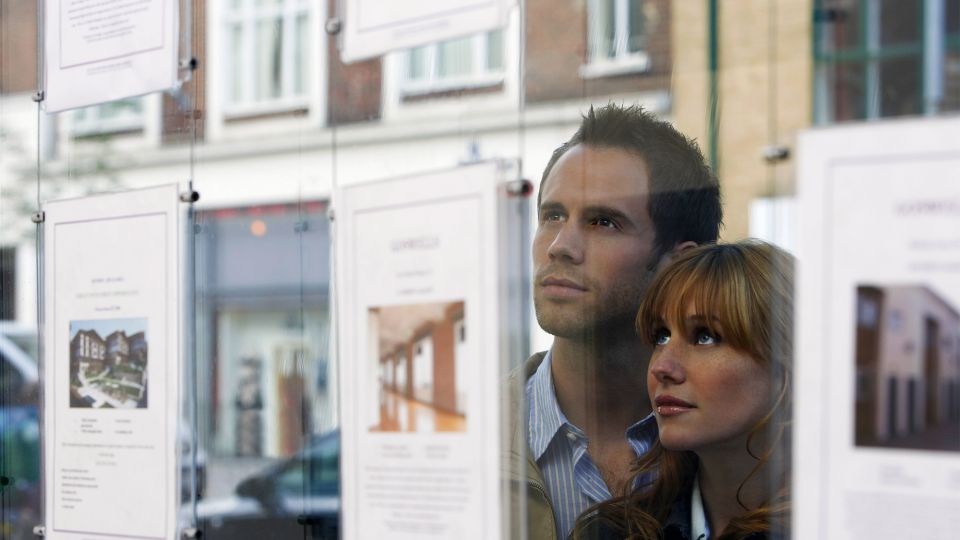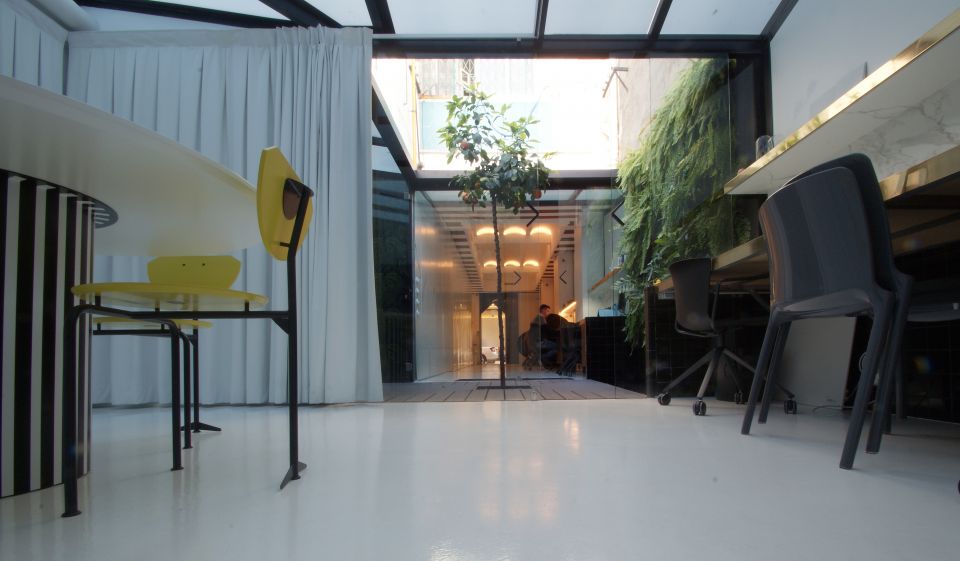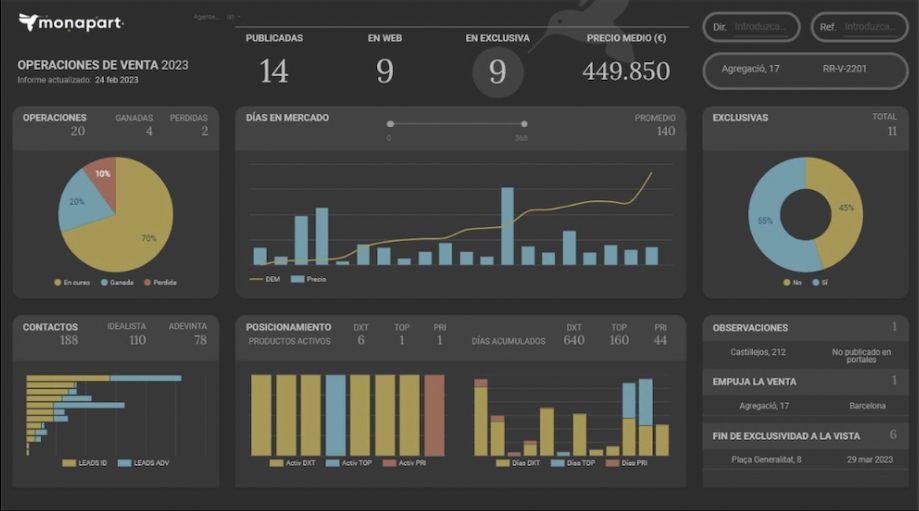Street-level real estate agencies, for or against?
Today, in a context where the consumer turns to the internet 90% of the time when initiating a purchase process, it is no longer so much...
In the 21st century, the workspace is one of the concepts that has evolved the most, especially with the irruption of new tools focused on communication and efficiency. co-workings They are here to stay! However, we must make an important distinction at the outset: when people talk about real estate agencies "without a physical office", this is not entirely correct, since agents always have a workspace. What we are actually talking about is the separation between the workspace and the customer service (and nowadays, this is mainly carried out via digital platforms...).

When people talk about real estate agencies "without a physical office", this is not entirely correct, since agents always have a workspace. What we are actually talking about is the separation between the working space and the service to the public.
Here's a fact: What is the percentage of sales transactions that take place thanks to the Internet (basically real estate portals)? Doing a quick search, the first figure I find is 81% in this 2015 article by Idealista News, "Internet is the preferred medium for house hunting".. The superiority is overwhelming with respect to the real estate business arising through off-line channels (letterboxes, advertisements in newspapers/magazines, billboards, etc.). So, what is the use of the street level?
Being very simplistic, we can argue that an agency on the street invests 20% of its costs (portals, web, CRM) in achieving 81% of its effective sales leads, and 80% (rent, maintenance costs, salaries), to achieve the remaining 19%. Absurd, isn't it? OK, we have gone too simplistic. Mainly because the most important piece of information is missing: What do the agencies on the street sell? Flats? No. Their services? Yes. Although... It is not true that we can't make a sale on the street. Even two.
But the simplistic example above is completely valid now, because it tells us that nobody in their right mind would invest 80% of their expenses to achieve 20% of their sales. Why do they do it? Because they achieve 80% (a rhetorical figure, but probably very close to reality) of their fundraising. It has all the logic in the world... but only for the agency.
This post is not a plea against street footwear. From a business point of view, it is still profitable right now, but there is a catch!
It goes without saying that this post is not a plea against street footfall. From a business point of view, it is still profitable right now. But there is a catch. The homeowner still goes (and a lot) to the agencies that are on the street. Often in their own street. And the agencies have a sales argument with respect to the agencies without street level, and that is that they have one more sales channel. But nowadays, it is so residual that it is not really an effective advantage for the owner. Surely if the agency invested the resources that now keep the shop open in a greater online presence, the owner would benefit much more. But in that way, the owner would not have walked through that door, because there would be no door. Because there would be no door. What does this mean? That the owner is paying for his own recruitment!
Following on from this reflection, we realise a really key fact. In the real estate sector there is a particularity compared to most sectors, and that is that there are, as we said before, "two sales": first the service is sold to the offerer, and then the property is sold (or rented, in this case it is the same thing) to the applicant.
A few years ago there was a major technological disruption in the sector. But only half of it, because it only affected the "second sale". The advent of real estate portals meant that buyers, almost by default, looked for their property on the Internet as their first and almost always only option. This quickly turned the posters hanging from balconies and agency windows into mere offline advertisements for homeowners.
In other words, outdated sales resources (posters, mailing offers, etc.) are now being used as an attraction argument, precisely because disruption has not yet reached the "first sale". In the current context, players are starting to arrive low cost fully online (shoot me if I say another English word), and this makes a lot of old-school gamers afraid. I think it's a blessing.
These new players will not be able to replace a high value-added service (although they will replace everything else), but my bet is that they will start to drag lead generation massively into the online world. This could be the long-awaited disruption of the "first sale".
If I am not wrong in my predictions, welcome to my new competition. At Monapart we are prepared for this moment, because, although we continue to generate offline leads, these are not obtained with offline "second sale" arguments, but everything points to the future, to the fact that technology will have an important weight throughout the whole marketing process, and we know that with the estate agent's website is not enough.
In addition, we have increased work efficiency with a new work organisation. For example, in Monapart Valencia, we have an office to attend to the public in the Tiovivo Creativo co-working, to work close to our focus of action (in Russafa, in the centre of Valencia), and to interact with other professionals with the aim of generating multiple interactions; we also have administration offices outside the city (in Torrent), which allows us to reduce costs in something that does not affect the quality of our service; we have centralised services in Barcelona, which supply the entire network of Monapart agenciesAnd we agents can work, if the situation requires it, at home, in the bar near the next visit, or in a town 200 kilometres away where, for example, we may be attending a training workshop. Get over it, neighbourhood shop!

In the end, this disruption will not be easy, but it will take away - hopefully - outdated concepts as we sit in an office. It will take away the cold door (this is more of a wish, but realistically, it will only change it a little).
It will take away the yellowed posters, the ones that are baked in the sun hanging from a balcony, and the ones that are printed with the HP Deskjet and stuck to the glass... Even though there are still many professionals who think that the future of real estate brokerage is to put LED lighting on them. And very important, it will take away useless costs that the owner ends up paying for being captured. I would like to know your opinion after all this reflection, on the street... for or against?
A relatively few years ago, the idea of a real estate agency without an office on the street was inconceivable. But today, in a context in which consumers turn to the internet 90% of the time when they initiate a purchase process, not so much... Join us in this reflection and give us your opinion. On the street, for or against?





